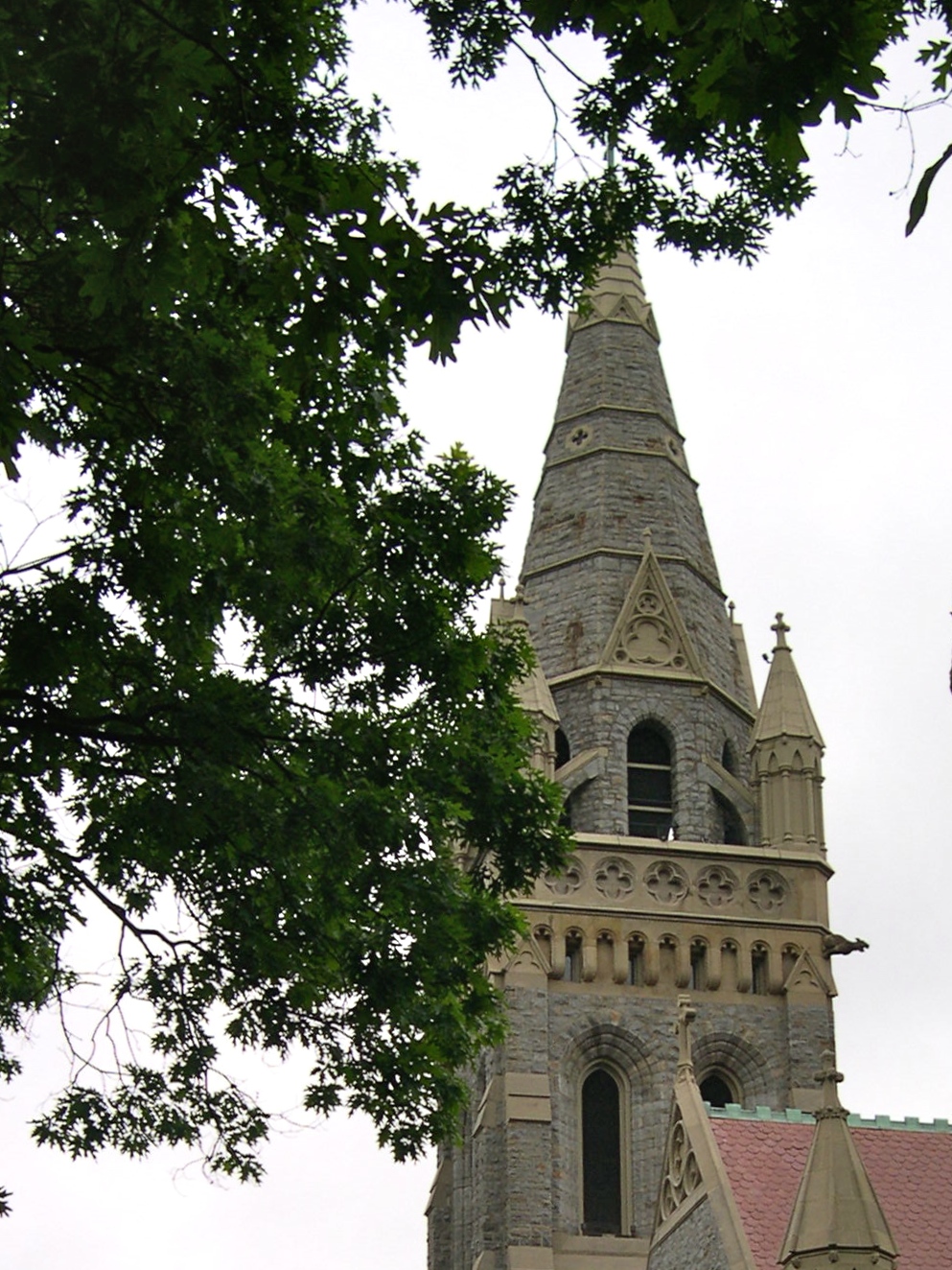
After our annual singing of the chorale from Cantata 27, “World, Farewell” offered as a memorial to friends of the Bach Choir family who have died in the past year, a reduced ensemble of singers will begin the first of our Friday concerts by offering one of Bach’s most intimate cantatas, Cantata 106, also known as the Actus Tragicus. One of his earliest vocal works, this Cantata, “God’s time is the very best time,” is widely considered to be, in an oeuvre brimming over with musical genius, one of Bach’s best works. It is, in fact, a little daunting to write about – especially since some of the best writing about Bach’s life and music in recent times have included lengthy discussions about the piece. If you’ve not read James R. Gaines’ An Evening in the Palace of Reason, I cannot commend it to you highly enough. Likewise, the British conductor John Eliot Gardiner’s new examination of Bach’s life and music, Music in the Castle of Heaven, also offers extremely perceptive analysis (as do the liner notes of his recent recording of the piece, which you may read in their entirety by following the link from here, and from which I will quote in this post).
After we sang the work at a Bach at Noon a few years ago, my wife and I began a period of near-obsessive listening to the Actus. As Gardiner puts it, “The more you peer below the surface, the more complex the Actus tragicus turns out to be.” He is writing about the fusion of musical and textual symmetry, as well as the vast reserve of the work’s spirituality, and the intellectual and theological maturity of the composer. This may suggest a kind of musical puzzle, or an intellectual exercise of the highest order, but what strikes the listener is not the dizzying complexity (and one’s incredulousness that the composer was a mere 22 years of age when he wrote it), but the deep empathy and humanity of the work’s author. Scholars differ as to the occasion for which it was written, but the piece is definitely a funeral cantata, and one that fuses the twin purposes of consolation with worship in a way that strikes me as deeply similar to the German Requiem of Johannes Brahms.
Much like the Brahms Requiem, the Actus Tragicus begins with the pulse of a heartbeat in the continuo, followed by the rich sonorities of two duetting violas da gamba. The gut strings of the gambas provide a burnished, understated tone that is heartbreakingly lovely. Within a few seconds, Bach ups the emotional ante with the entrance of two recorders (this spare instrumentation, organ and basso continuo, with two gambas and two recorders is the reason for the reduced forces of singers). What follows is an opening sonata of extraordinary beauty and devotion: this is music of great consolation. The pulsing continues, the gambas and recorders undulate, offering gentle dissonance and peaceful resolution, and the whole affect, it seems to me, is of a wistful sigh.
The chorus enters with a text elaborating on the work’s title, that God’s time is the very best time, and that, in an echo of Acts 17:28, “In him we live and move and have our being.” Also, if God wills it, we come to our end. If this reads like boilerplate theological bromide on the screen, in Bach’s music, the result is quite different. The chorus beings in a highly persuasive musical embrace, followed with vivid text painting of the words concerning living and moving. The pace and character change when the topic moves to our death – a kind of choral transition to the tenor arioso that follows. In the arioso, the tenor pleads with God to “teach us to number our days, so that we may apply our hearts to wisdom,” a passage from the Psalm 20. Next, an aria by the bass quotes Isaiah 38:1, “Put your house in order, for you will die, and not live.” This instruction bridges another biblical passage that the choir offers in a stile antico fugue (highlighting the ancient nature of the law): “Man, you will perish.” At this point, these Old Testament exhortations begin, to my 21st century ears, to sound a little clinical, and perhaps not-so-consoling. Maybe Bach felt thusly, and one of the masterstrokes of his genius in this piece was the dialogue that the soprano soloists has, across the ages, with text from Revelation 22:20,”Ja (substituting for the Amen in the biblical passage), komm, Herr Jesu, Komm.” “Yes, come, Lord Jesus, come.” This fusion of a rather rote recitation of “the ancient law” with something so intimate and personal as the pleading from the soprano from the last book of the Bible brings both a sense of symmetry to the text, but also offers a kind of cosmic consonance, that death delivers us, at last, to our savior and Lord. Bach concludes this dramatic fusion with breathtakingly vivid text painting. As the choir concludes their singing of the ancient law text with parallel rising and falling motion (the counterpoint stops here), the soprano sings her last “Ja, komm, Herr Jesu,” in triplet figures as the instruments disappear from the texture, leaving her voice to trail off, unaccompanied, into silence. Of this moment, Gardiner is particularly eloquent and perceptive:
Yet the most impressive feature of Bach’s fusion of music and theology occurs in that central silent bar to which we as listeners are irresistibly drawn. Bach’s final, masterly coup – to illustrate the believer’s crisis of faith and overwhelming need of divine help – is to leave the soprano’s immediately preceding notes tonally ambiguous – her voice just evaporating into that desperate cry. There is no resolution, not even a partial closure that might carry the harmony towards a stable cadence: so it is up to us how we interpret it in the silence that follows. If we hear it at face value as a weak perfect cadence (a tierce de Picardie in F minor), that would indicate death as a kind of full stop. But perhaps we are being gently nudged to hear the final oscillation between A and B flat as leading note and tonic respectively, in the key of the movement which follows, B flat minor. In that case Bach’s message is one of hope, the tonal upswing indicating that Christ’s intervention guarantees that death is only a midway point on our journey, the beginning of whatever comes after.
As the performers musically accept the precept of the ancient law, a striking alto aria follows, with words from Psalm 31:6: “Into your hands I commend my spirit. You have redeemed me, O God of truth.” That sense of resignation is not unrewarded, what follows is a stunning dialogue between the bass soloist, and the altos of the choir. The bass soloist quotes Jesus’ words to the thief who, during the crucifixion, asks to be remembered when Jesus reaches his heavenly kingdom (found in Luke 23:43), “Today you will be with me in paradise.” After a few statements of this text over spare accompaniment, Bach underlines the import of Jesus’ statement with the reentrance of the gambas, offering the sturdiest and most devout counterpoint as the bass continues repeating Jesus’ words. He then superimposes the altos of the choir, singing Luther’s chorale-based paraphrase of the Song of Simeon, found in Luke 2:29: “In peace and joy I now depart, according to God’s will…” When the chorale quotation reaches the text, “I am consoled in heart and mind, gentle and still,” the bass drops out, and when the altos reach the words “sanft und stille (gentle and still),” the accompaniment pauses for a moment, panting a musical picture of of that gentle and rhapsodic stillness, the release that death offered that was so attractive to the faithful of Bach’s lifetime. It’s an extraordinary moment in a work full of them. The cantata concludes with a doxological hymn of praise, first offered in an augmented chorale or hymn-like form, followed by thrilling counterpoint that combines a melisma on the word “amen” with fragments of the chorale.
In the Actus Tragicus, Bach moves through many emotions, moods, keys, from deepest grief to a foretaste of heavenly worship, all in under 20 minutes of vital, fresh, and impossibly beautiful music. Not a single note is wasted, nothing is where it doesn’t belong, and each stroke of the composer’s pen brings about an expression of faith full of both deep empathy and astounding eloquence at which we can only marvel. Again, Gardiner, in whose awe at this brilliance I share deeply:
This extraordinary music, composed at such a young age, is never morbid, saccharine or self-indulgent; on the contrary, though deeply serious, it is consoling and full of optimism.
Amen. I think a performance of this cantata, alone, is worth the price of a ticket, but, in this concert, we will also hear one of The Choir’s dearest friends, the Canadian bass Daniel Lichti, offer Bach’s monumental solo bass cantata, the Kreuzstab, No. 56, and we will conclude with Cantata 131. All three offer monumental musical journeys of faith, traversing a panoply of human emotion and musical craft. This is going to be a very special concert. Please stay tuned for reflections on the other repertoire – I’ll be updating often.










































